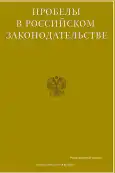Comparative Analysis of Russian and International Legislative Regulation of Cyberterrorist Crimes
- Authors: Kochesokova Z.K.1
-
Affiliations:
- Krasnodar University of the Ministry of the Interior of Russia
- Issue: Vol 16, No 4 (2023)
- Pages: 198-202
- Section: General theoretical, criminal-legal and other problems of Countering extremism and terrorism. Problems of preventing extremism and terrorism
- URL: https://journals.eco-vector.com/2072-3164/article/view/568436
- EDN: https://elibrary.ru/RRIHBO
- ID: 568436
Cite item
Abstract
The purpose of this study is to study issues related to the analysis of Russian and international legislative regulation of cyberterrorist crimes. Cyberterrorism tends to develop; it is because of this that law enforcement agencies will have to rebuild their system with respect to new requirements. It will take the development of a whole system capable of ensuring an effective fight against this type of crime. The development of a digital society in the modern world and Russia, in particular, depends on how effectively law enforcement agencies will be able to resist cybercrime, what measures will be taken to prevent, disclose and investigate terrorist crimes, what regulatory legal acts will be developed to regulate this sphere of public relations. The concept of cyberterrorism is enshrined at the legislative level in the United States and Ukraine, although the problem of cyberterrorism is widespread and is relevant for most countries of the world. In the UK, the concept of terrorist acts is clearly defined and enshrined in the Terrorism Act 2000. The same law also notes such an act as "serious damage to electronic systems". There is no special composition called "cyberterrorism" in the act. The French Criminal Code has an expanded classification of crimes related to terrorist activities. This area is still open, so the criminalization of acts can expand. The Belgian legislation has a similar approach. The very concept of cyberterrorism exists, there is an understanding that this phenomenon poses a danger to the state, but the term has not been reflected in the current legislation. In the People's Republic of China (PRC), there is a generalized concept that contains the concept of cyberterrorism. In Russian practice, even if the crime was committed using digital technologies, Article 205.2 of the Criminal Code of the Russian Federation "Public calls to carry out terrorist activities, public justification of terrorism or propaganda of terrorism" is used. The choice of such a measure is due to the fact that communication between people is often carried out via the Internet.
Full Text
About the authors
Zalina K. Kochesokova
Krasnodar University of the Ministry of the Interior of Russia
Author for correspondence.
Email: zalina-solnce@mail.ru
Cand.Sci.(Econ.), Associate Professor of the Department of Special Disciplines, North-Caucasian Institute for Advanced Studies
Russian Federation, Nalchik, KBRReferences
- Bradul E.V. Cyberterrorism: problematic issues of interpretation and qualification // In the collection: Cybercrime: risks and threats. Materials of the All-Russian student round scientific and practical table with international participation. Saint Petersburg, 2021. pp. 134-138.
- Danelyan A.A. Cyberspace and international law // International Legal Courier. 2019. No. 4-5 (33-34). pp. 5-11.
- Zheludkov M.A., Popov A.M., Dubrovina M.M. Features of countering cybercrime in Russia and foreign countries // Bulletin of the Volgograd Academy of the Ministry of Internal Affairs of Russia. 2018. No. 3 (46). pp. 97-102.
- Efremova I.A., Smushkin A.B., Donchenko A.G., Matushkin P.A. Cyberspace as a new crime environment // Bulletin of Tomsk State University. 2021. No. 472. pp. 248-256.
- Kvyatkovsky K.S. Crimes in the field of computer information, computer crimes and cybercrime: correlation of concepts // Young scientist. 2022. No. 42 (437). pp. 108-112.
- Kuleshova G.P., Kapitonova E.A., Romanovsky G.B. Legal foundations of countering cyberterrorism in Russia and abroad from the perspective of socio-political dimension // All-Russian Criminological Journal. 2020. Vol. 14. No. 1. pp. 156-165.
- Levashova O.V., Sotnikov I.L. Cybercrime: the main directions of international cooperation in countering it // Modern Science. 2022. No. 1-2. pp. 145-149.
- Saunina E.V., Bazhina I.D. International experience of legal regulation of countering information terrorism // Bulletin of the Nizhny Novgorod University named after N.I. Lobachevsky. 2022. No. 1. pp. 108-115.
- Semenova I.V. The concept of "cyberterrorism": a theoretical and legal approach // Military law. 2022. No. 2 (72). pp. 73-77.
- Yakovleva A.V. Cybersecurity and its legal regulation (foreign and Russian experience) // Socio-political sciences. 2021. Vol. 11. No. 4. pp. 70-81.
Supplementary files








